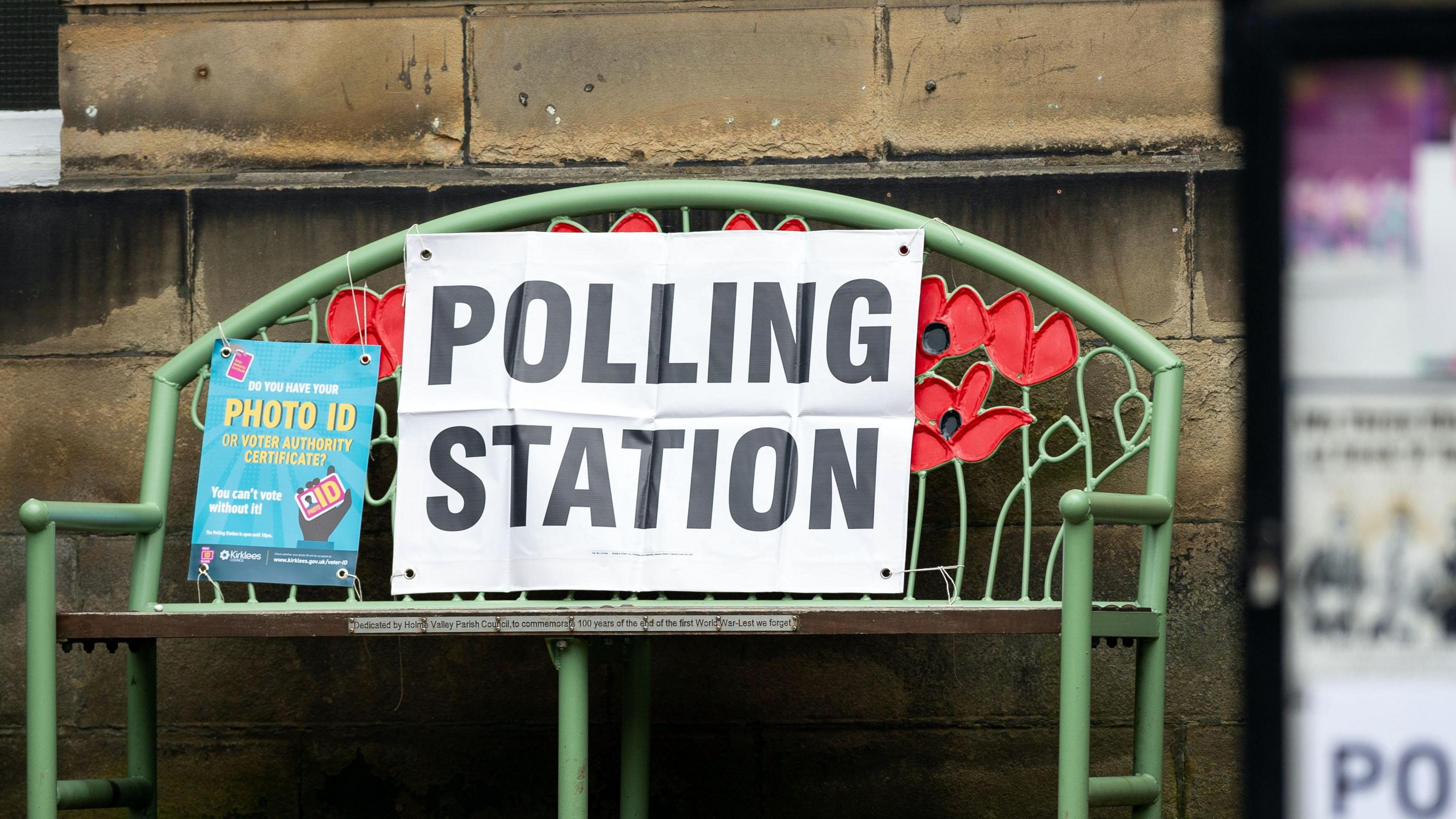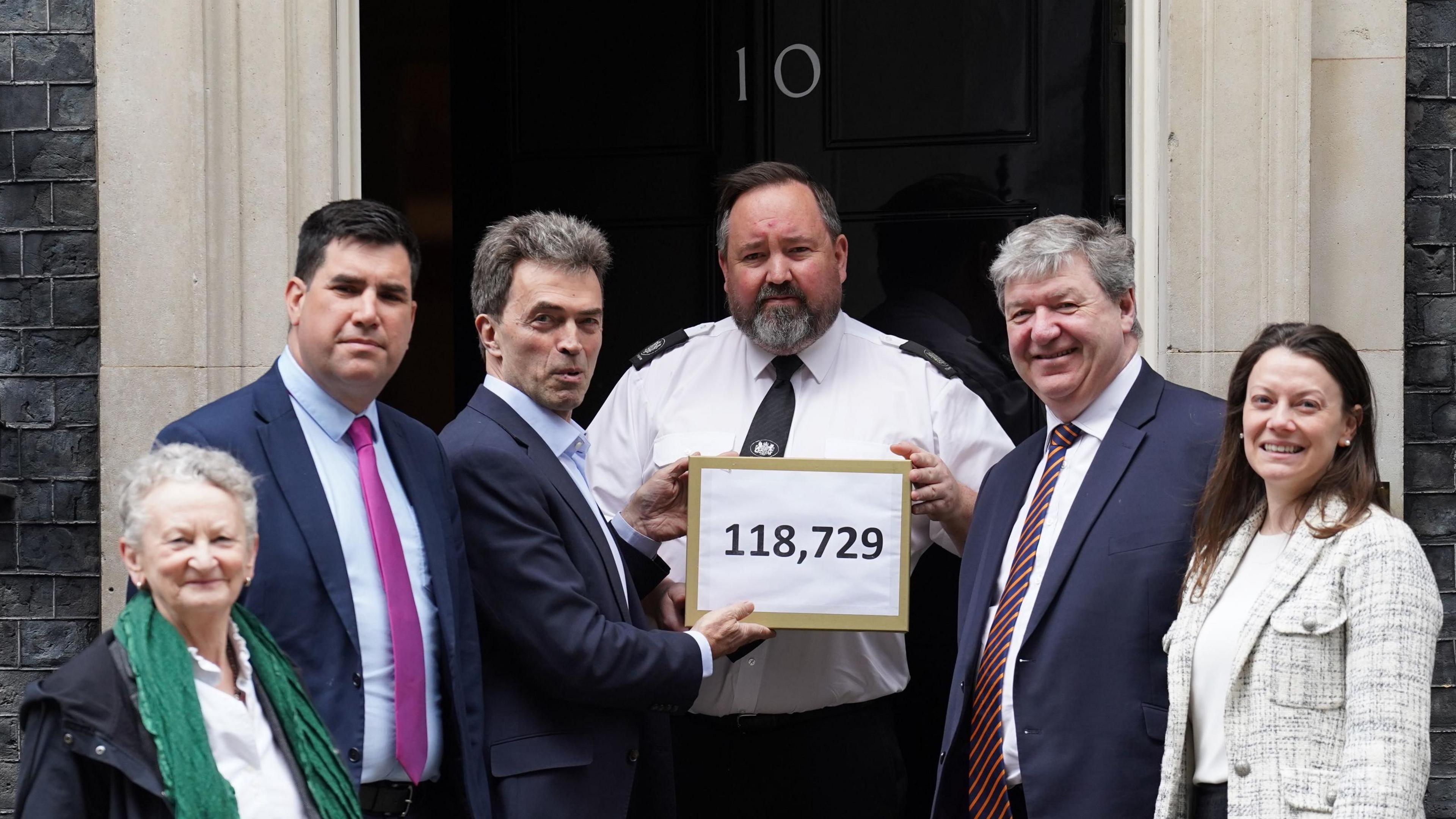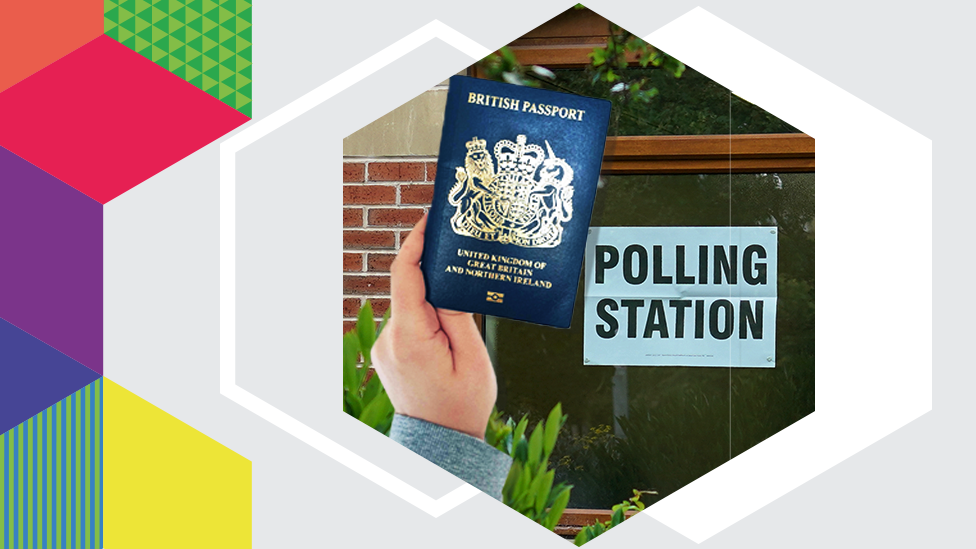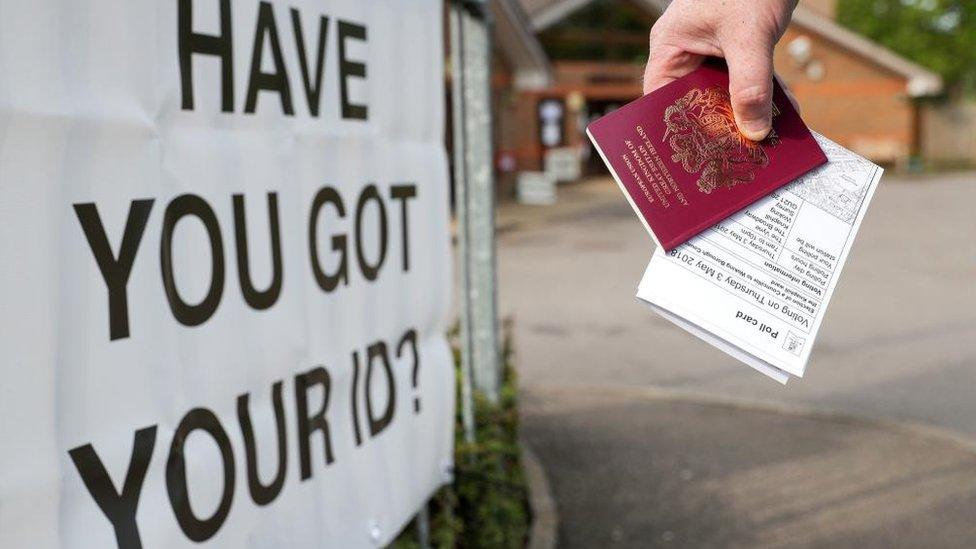Abuse of election staff over voter ID 'shocking'

A poster reminds voters to bring photo ID at a polling station
At a glance
A number of polling station workers faced "horrid abuse", a council leader says
For the first time voters needed to show photo ID
Electoral Commission admits challenges and will produce a report
- Published
A council leader has said the abuse of local election workers following the new photo ID rule was "shocking".
Ian Maher, who leads Sefton Council on Merseyside, said some of the 850 polling station workers in the borough had been "subjected to horrid abuse".
For the first time, everyone voting in the local elections needed to show photo ID.
But the new rule proved divisive with some officials warning it could make it harder for some to vote and lead to abuse.
More than 100,000 people signed a petition, external to scrap the requirement.
Mr Maher, who represents Labour, described the new rule as "needless".
"But I also want to say how sorry I am that staff have been put in the position where they have had to endure abuse from the public, in no small part because of the new rules.
"We knew from the introduction of photo ID requirements that this change would not be well received by some of our communities but to hear that our hard working staff, who are simply helping people have their democratic say, have been subjected to horrid abuse is frankly shocking."

A petition signed by over 100,000 people was handed to 10 Downing Street in April
Campaign group Unlock Democracy said a "significant number" of issues with voter ID meant the requirement should be scrapped.
The Electoral Commission chairman John Pullinger acknowledged there were issues with voter ID, but said his organisation would collect data "before we get a proper picture of the impact".
He said the rules were set by Parliament and – following a review - "there will be the chance for politicians to make a view as to whether something should be changed or not".
Prime Minister Rishi Sunak has previously said the ID checks would ensure elections are "high-integrity processes".
Since 2018, there have been nine convictions and six police cautions issued in connection with cases of electoral fraud, according to the Electoral Commission.
Related links
See also
- Published29 April

- Published5 May 2023
